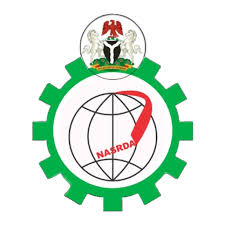The National Space Research and Development Agency (NASRDA) has pledged to back both government and private-sector efforts aimed at eradicating hunger in Nigeria and sub‑Saharan Africa.
Dr. Matthew Adepoju, NASRDA’s Director‑General, made the commitment in Abuja on Tuesday at the launch of a three‑day workshop on CropWatch—a satellite‑based global crop monitoring platform.
The workshop, themed “Empowering Agricultural Extension Workers for Food Security: The Role of CropWatch (Innovative Cooperation Programme) in Enabling Monitoring and Stabilising Food Productivity in West Africa”, was held in collaboration with UNCTAD, ANSO, and China’s Aerospace Information Research Institute (AIR‑CAS).
Represented by Dr. Alaga Abayomi (Director, Mission Control and Satellite Data Management), Adepoju stated:
“NASRDA will continue to support partnerships to end hunger… Our collaboration with AIR‑CAS on CropWatch will accelerate development of satellite‑based data needed to achieve zero hunger ahead of schedule.”
He highlighted the agency’s commitment to meeting SDG 2 (Zero Hunger) by 2030, and called for urgent, coordinated responses to food insecurity—stressing that CropWatch’s remote sensing, AI, and big data analytics enable timely crop monitoring, yield prediction, and risk mitigation.
ANSO’s Deputy Executive Director, Dr. Zhang Shizhuan, emphasised the need for international collaboration in applying space science, saying:
“Climate resilience, food security, health, and biodiversity conservation are top priorities… CropWatch ICP exemplifies advanced satellite technology and AI benefiting all.”
Dr. Wu Bingfang (AIR‑CAS) pointed out existing gaps in Africa’s agro‑ecosystem mapping and stressed the need for agricultural extension workers to be trained as AI‑savvy, satellite‑data users.
NASRDA’s Dr. Rakiya Babamaaji, CropWatch Coordinator, described the workshop as a key step toward equipping extension workers with space‑based tools to improve regional food systems.
Speakers including Dr. Hugh Briggs (EU Programme Manager, Agriculture) and Mr. Kofi Asare (Ghana Space Science Institute) called for stronger extension networks and user-friendly applications to bridge the tech‑farmer divide and build climate‑resilient agriculture.


